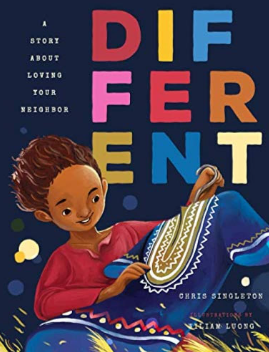Fort Mill pediatrician Dr. Ebele Orazulike explored the world by reading books as a child long before she began to travel.
Orzulike, who grew up in Nigeria and came to the United States in 2006 to complete her residency after studying and training in Europe, enjoys helping her patients discover the joy of reading. She is able to do that through the Reach Out and Read program which is funded by the local nonprofit, Early Learning Partnership of York County.
“It creates a love of reading,” she said of ELP’s program, which provides books to children from birth to age 5 at each of their well child visits. “I’m pretty close with a lot of my patients. A lot of parents say, just because you gave her this book, she loves it.”
ELP provides the Read out and Read program, a national evidence-based program, in 10 pediatric medical offices across York County, including Orazulike’s practice, Southern Med Pediatrics.
Through ELP’s collaboration with the national ROR office and its ROR-Carolinas affiliate, ELP provides training and children’s books that are diverse and age and language appropriate. ELP also supports the medical team, which promotes bonding, early brain development, and a love of learning in young children and families during well-child visits.
Orazulike, who is the mother of three children with her husband, said she wants her patients to be able to see themselves in the books they read. She makes a point to give books that feature characters that look like her patients.
One of the books she has received for her patients from ELP’s ROR program is “Different,” by Chris Singleton. The story is about a young Nigerian boy who is struggling to fit in in the United States, and who finds acceptance.
The story line resonated for Orazulike, “because I know how it was when I left home, fighting to be accepted.” She said her own children also were excited to read a book about a Nigerian child.
“We’ve read that book every day for the past three months,” she said.
“I definitely like where Reach Out and Read is headed, because a lot of the books are very inclusive, there are different faces, different colors,” she said. “There’s a lot of different people out there. The more they see it, the more they accept it.”
She sees the diversity in children’s books as important to all her patients.
“We are what we are exposed to, ultimately that’s all you know,” she said. “I feel like a lot of the problems we have now, it’s just because of a lack of exposure. Just exposing children to these inclusive and diverse books now, during their formative years will help in their future.”
Orazluke said she likes to tell her patients about her own reading experience to encourage them.
“I read about so many places before I left home, so when I got to meet those people, I knew something about their culture, their experiences, their lives.”
Orazulike said many of her patients look forward to their well child visits because they know they will receive a new book at each visit.
“Just being associated with those books,” she said, “it makes me happy.”

